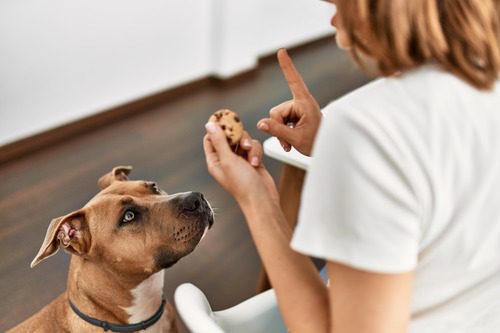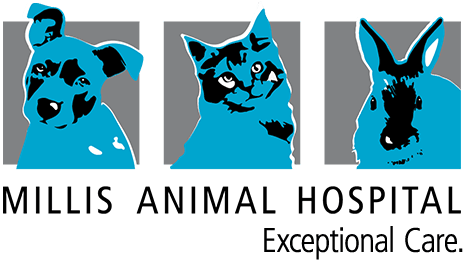When your dog eats something potentially harmful, like chocolate, it’s natural to worry. However, what if your dog seems to be acting just fine? Should you still call the vet? This blog will discuss why it’s important to take chocolate ingestion seriously, regardless of immediate symptoms.

Understanding the Danger of Chocolate
Chocolate contains theobromine and caffeine, both toxic to dogs. These substances can affect your dog’s heart, central nervous system, and kidneys. The severity of the symptoms can depend on the type of chocolate, the amount consumed, and your dog’s size.
Dark chocolate and baking chocolate contain higher levels of theobromine compared to milk chocolate. A small amount of dark chocolate can be more dangerous than a larger amount of milk chocolate. Even if your dog seems fine, these toxins could be causing damage internally that isn’t immediately visible.
Symptoms of Chocolate Toxicity in Dogs
Symptoms of chocolate toxicity might not appear right away. It can take several hours for theobromine to be absorbed into your dog’s system and start showing effects. Some common symptoms include:
- Vomiting and diarrhea
- Increased thirst
- Restlessness and hyperactivity
- Rapid breathing or panting
- Muscle tremors and seizures
- Irregular heart rate
Even if your dog ate chocolate but is acting fine, these symptoms can develop later. It’s crucial to monitor your dog closely and be aware that symptoms can progress rapidly.
Why Your Dog Might Be Acting Fine
Your dog may appear to be fine immediately after eating chocolate because the toxic effects take time to manifest. Theobromine is slowly absorbed and metabolized, meaning the symptoms might not show up for several hours. During this time, the toxins are already affecting your dog’s organs and systems.
Long-term Health Effects of Chocolate Ingestion
Even if your dog seems fine after eating chocolate, there could be long-term health effects. Repeated exposure to theobromine can cause cumulative damage to your dog’s heart and kidneys. Chronic exposure, even in small amounts, can lead to:
- Heart disease
- Kidney failure
- Neurological issues
Immediate veterinary care can help mitigate these long-term risks. Early intervention is key to preventing permanent damage.
What to Do if Your Dog Eats Chocolate
Call Your Veterinarian
If your dog ate chocolate but is acting fine, it’s still essential to call your vet. Provide them with information about the type of chocolate, the amount consumed, and your dog’s weight. Your vet can assess the situation and advise on the best course of action.
Monitor Your Dog
After calling the vet, closely monitor your dog for any signs of toxicity. Even if your dog seems fine, keep an eye on their behavior and look for symptoms like vomiting, diarrhea, or restlessness.
Follow Veterinary Advice
Your vet may recommend bringing your dog in for an examination, even if they appear fine. They might induce vomiting or administer activated charcoal to prevent further absorption of theobromine. In some cases, hospitalization and supportive care, such as IV fluids, may be necessary.
Preventing Chocolate Ingestion in Dogs
Preventing your dog from accessing chocolate is the best way to avoid these situations. Here are some tips to keep chocolate out of reach:
- Store chocolate in high cabinets or locked containers
- Educate family members and guests about the dangers of chocolate for dogs
- Keep an eye on children, as they might unknowingly share chocolate with your dog
By taking these precautions, you can reduce the risk of accidental chocolate ingestion.
Recognizing and Acting on Potential Risks
Even if your dog ate chocolate but is acting fine, it doesn’t mean they’re out of danger. The effects of chocolate toxicity can be delayed, and it’s crucial to act quickly. Call Millis Animal Hospital at 508-376-5317 to ensure your dog’s safety and well-being. By understanding the dangers of chocolate, recognizing the symptoms of toxicity, and knowing how to prevent accidental ingestion, you can protect your dog from this common hazard. If in doubt, it’s always better to err on the side of caution and seek professional veterinary advice.
Recent Posts
About Us
Millis Animal Hospital is a privately owned AAHA-accredited, Cat-Friendly Certified practice staffed with Fear Free Certified professionals. We know a thing or two about treating pets and their families the way they deserve, with excellent preventive care and surgical services tailored to your individual needs.
